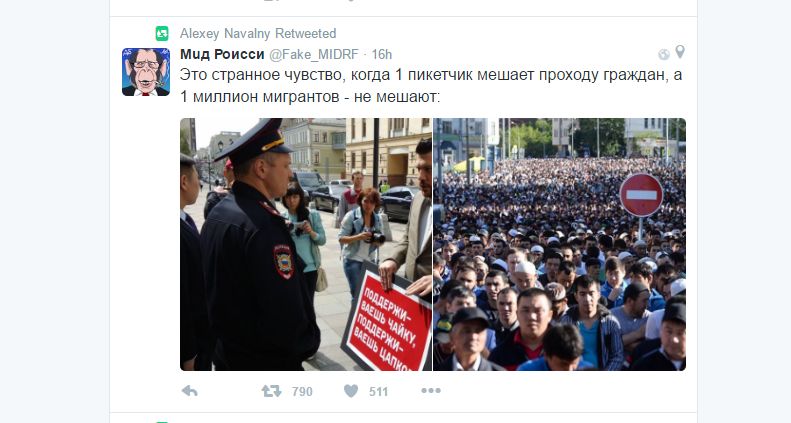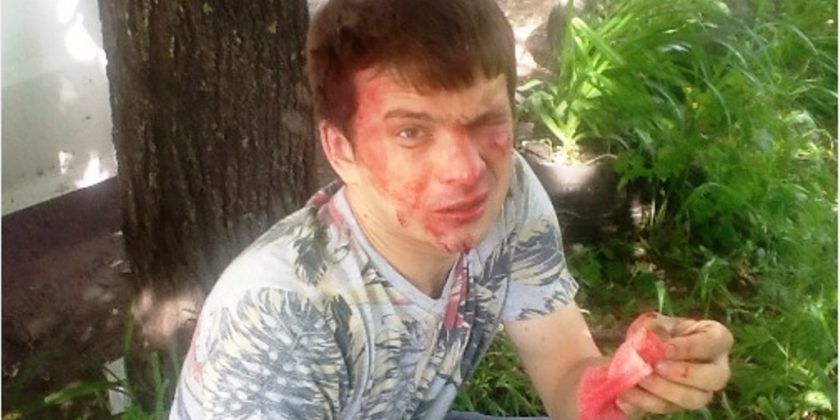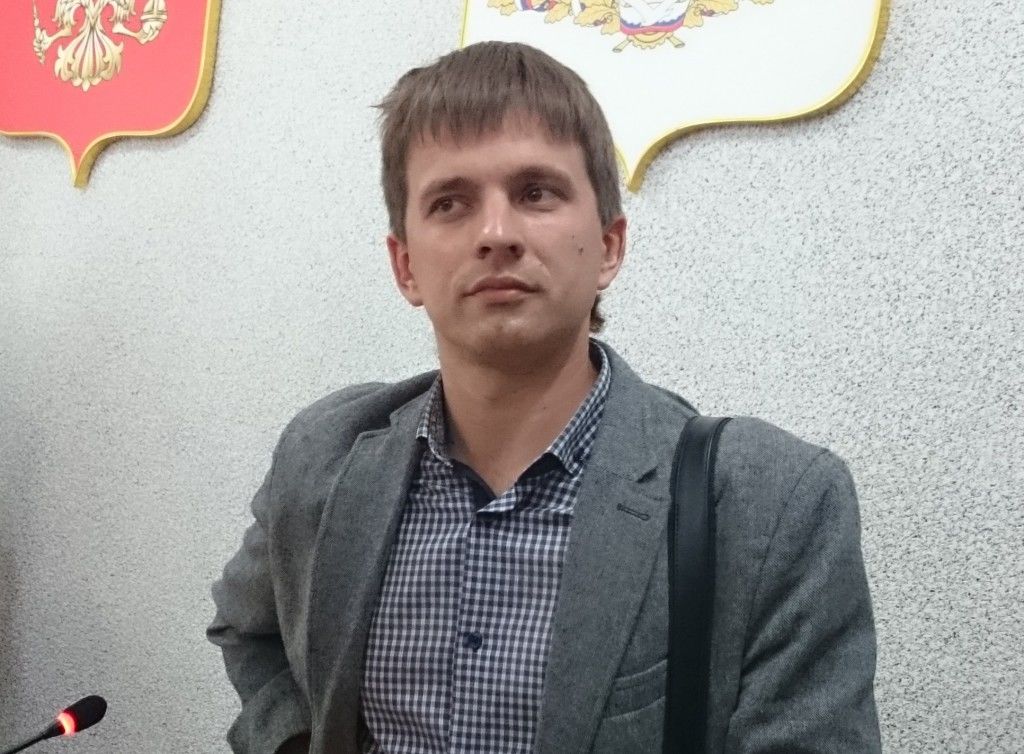LIVE UPDATES: US Secretary of State John Kerry and Russian President Vladimir Putin are to meet in Moscow today to discuss the wars in Syria and Ukraine.
Welcome to our column, Russia Update, where we will be closely following day-to-day developments in Russia, including the Russian government’s foreign and domestic policies.
The previous issue is here.
Recent Analysis and Translations:
– NATO Got Nothing From Conceding To Russia In the Past, Why Should It Cave To The Kremlin Now?
– Who is Hacking the Russian Opposition and State Media Officials — and How?
– Does it Matter if the Russian Opposition Stays United?
UPDATES BELOW
Staunton, VA, July 14, 2016 – There are many ways to measure the economic situation in the Russian Federation but most of them are problematic in one way or another, the result either of difficulties with the data or their proper interpretation given Russian conditions. But now there is one about which there can be little dispute.
That concerns a new trend: According to the Moscow Academy of Labor and Social Relations, Rossiiskaya Gazeta reports, “the exodus of [Central Asian and Caucasus] migrants from Russia as the result of the decline of the ruble has freed up jobs which Russians have begun to occupy,” even though they were unwilling to take such low-skill positions earlier.
In the last year in the city of Moscow, the academy found, the share of labor migrants in wholesale and retail trade in Russia has declined by 54 percent, but the number of people employed in that sector has gone up, mostly consisting of Russian citizens. A similar pattern holds in other sectors as well, the Moscow experts say.
In finance, the number of migrants has declined by 96 percent, while employment there has increased 15 percent. In education, the number of migrants has fallen by 96 percent but overall employment there has declined only by six percent. And in healthcare, the number of migrants has fallen by 13 percent, while total jobs have fallen only two percent.

Alexey Navalny, a leading Russian opposition figure in recent years and a constant campaigner against official corruption, can’t run in the elections due to his suspended sentences in cases widely believed to have been fabricated in retaliation for his opposition activity.
But he has been ubiquitous in all election coverage at least by independent media and continues to think up ways to keep himself and his issues in the spotlight.
Today he focused on the outrageous excess implied in the deputy prime minister’s wife paying to fly their corgi around.
Translation: Olga Shuvalova confirmed the Anti-Corruption Fund’s investigation and announced that she is “defending the country’s honor.”
Navalny contrasted the funds raised by the site nuzhnapomosh.ru [Need Help] whose director, Mitya Aleshkovsky tweeted that they had raised 40 million rubles ($635,5830 in 71 projects to benefit 30,000 people.
Translation: But the bureaucrat Shuvalov spent exactly that sum on the transport of his dogs on his personal plane.
Last month, Navalny sent an official appeal to Russian leaders asking for his Party of Progress, denied permanent registration despite jumping through numerous bureaucratic hoops, to be allowed to run in the elections.
More than any other party, Party of Progress has submitted paperwork and provided further supporting documentation in court appeals, even briefly obtaining registration before being suspended. Under the Russian Constitution, opposition parties should have the right to run in elections, and it does seem as if the government is being arbitrary.
Navalny didn’t get any answer to his plea, and instead has had his home searched and his co-defendant and brother Oleg, who is serving an actual labor colony sentence, was slapped with numerous charges of infractions and denied early release last m month.
Perhaps that’s why he has become rather laconic about the elections, writing a sarcastic post July 7 (translation by The Interpreter):
The year is 1993. I had just graduated from school. I am 17 years old. There are elections to the State Duma, in which [Grigory] Yavlinsky, [Irina] Khakamada, [Nikolai] Ryzhkov, [Gennady] Zyuganov,and [Vladimir] Zhirinovsky are running. I’m interested in politics, but I’m not allowed to take part in elections.
Now 23 years have gone by.
The year is 2016. I am 40 years old. There are elections to the State Duma, and Yavlinsky, Khakamada, Ryzhkov, Zyuganov and Zhirinovsky are running. I am interested in politics, but I’m not allowed to take part in elections.
Navalny cited a public opinion poll run by his Anti-Corruption Foundation of 1,000 people over age 18 from June 14-24, 2016. They found that 56% of those surveyed said they knew about the elections; 23% said they had only heard something about it and 21% said they were hearing about it for the first time. Of these, only 49% said they would take part in the elections.
And of this sub-set, 39% said they would vote for United Russia, 6% for the Communist Party, 5% for Zhirinovsky’s party, 4% for Just Russia and less than 1% for “other” or Yabloko or Parnas. There were 25% uncertain and 19% who found it hard to answer — note that unlike Western polls, which have a standard category called “undecided,” Russian polls have another category of people who “find it hard to answer” simply out of fear or ignorance or even spite.
Though the results are depressing for those who want change in Russia, Navalny isn’t giving up — virtually every day he publishes exposures of corruption and often comments acerbically on the issues of the day. But precisely because he stays mainly on the single issue of the top leaders’ hidden wealth, his actual party position isn’t so clear on a number of issues.
For example, it is only by his re-tweet of an intolerant tweet about Muslims on Ramadan by the parody account @Fake_MIDRF [Foreign Ministry], that you can surmise that his anti-migrant and nationalist positions are still intact.
Translation: That strange feeling when one picketer is blocking citizens’ passage, but one million migrants aren’t blocking.
The reference is to the arrest of picketers by government buildings for supposedly blocking traffic, and the convergence on Moscow’s mosques on the last day of Ramada by numerous Russian Muslims.
To be sure, Navalny regularly makes general statements about the state of Russia, as he did in a post this week about the findings of another Levada poll, on what Russians are proud of.
The poll found 44% looked to Russian history as a point of pride; 38% to Russia’s natural resources; 36% to its armed forces; 34% to Russia’s culture; 31% to the size of the country (the largest in the world); 22% to Russia’s position on the international arena; 21% to its athletic achievements; and 17% to scientific achievements.
Only 5% pointed to economic successes which are diminished since the crash in oil prices and the effect of Western sanctions after the annexation of the Crimea; 4% to Russian education which the greatest patriots fret about the most; and 2% to its health care system. Comments Navalny:
Practically everything that we can be proud of is made not by us and does not depend on us. History, natural resources and the size of the country.
What we should have made a subject of pride and could have with trillions of petrodollars that fell from the sky, has become rather a source of shame.
No wonder Putin focuses on World War II and condemns those “rewriting” history, adds Navalny.
It’s not clear — if all of Russia’s crooks and liars were finally prosecuted and corruption receded into the background what the next steps for Russia would be, in Navalny’s vision. He is understandably preoccupied with the Kafkaesque nature of the government’s endless cases against him and will be for some time to come.
— Catherine A. Fitzpatrick

As in the last few weeks, the number of cases of interrogations of opposition and independent media have been increasing, likely in connection with the forthcoming parliamentary elections, but also as part of a long-term crackdown on any dissent against the regime of President Vladimir Putin.
• Alexei Navalny, a Russian opposition leader and campaigner against official corruption, was summoned to give testimony in court today in connection with the trial of nationalist Aleksandr Belov (Potkin) who is charged with “creating an extremist organization,” RBC reported, citing TASS.
The case of Belov (whose real last name is Potkin), organizer of the annual nationalist “Russian March” and former head of the Movement Against Illegal Immigration, has been going on for more than a year. Last year, Belov gave a sensational interview to prominent Russian blogger Oleg Kashin, claiming that the Russian Federal Security Service (FSB) decided to arrest him when he refused to collaborate with them in corporate raids and even terrorism and murder in Ukraine
When Belov was originally detained in October 2014, he was accused of involvement in embezzlement of US $5 billion from depositors at the bank; Ablyazov funded a project called “Angry Kazakh” in which Belov was said to be involved.
(The Kazakh opposition has found the cause of Russian nationalists in northern Kazakhstan as well as Kazakh nationalists a useful way to oppose the regime of Nursultan Nazarbayev. Belov was charged with training ethnic Kazakhs).
Navalny testified he had not heard of the Kazakh project. Ivan Morozov, Belov’s lawyer, said the FSB decided to put Navalny on the stand because he was said to have some of the same contact with Kazakh opposition figures as Belov.
Belov is charged with making an “extremist organization” with the purpose of stirring up unrest in Russia and Kazakhstan, said Morozov.
The current investigation is also related to a criminal case opened in 2013 regarding posts he made on social media about Putin, regional officials, and the peoples of the North Caucasus. He was also jailed three days in 2014 for posting a satirical meme with the use of a swastika. At the time he had been organizing a trip by Parnas leader Mikhail Kasyanov to Saratov. In February 2015, Balin was attacked and robbed hear his home.
Balin said he could be arrested for “incitement of hatred” and “denigration of the dignity of state security employees” for a Facebook post July 15, 2015.
These interrogations follow the detention of another regional leader, Yegor Savin, detained July 8 at the Novosibirsk airport and accused of transporting “extremist literature.” He was searched and released.
• The FSB demanded that Ekho Moskvy, often described as “the last independent radio station in Russia,” turn over a list of all its web site editors.
Translation: Ekho Moskvy turned over a list of all the employees of the site at the FSB’s demand.
The FSB asked for the list in connection with the investigation of the publication by political analyst Andrei Piontkovsky about Chechnya, characterized as “extremist.” Piontkovsky was forced to flee Russia last February.
This type of pressure on the opposition and independent press is at odds with a statement Putin made today during a visit of the State Duma (the lower house of parliament), claiming that he welcomed opposition, RBC reported.
“I think that the deputies, and the citizens of the country should be pleased not only at the growing level of competition but of political culture.”
Translation: Putin is prepared to work with all political forces in the new Duma.
He contrasted the State Duma with other parliaments of the world where scandals and even fist-fights break out.
— Catherine A. Fitzpatrick
— Catherine A. Fitzpatrick

Bragin was found to suffer corneal erosion from the assault that may lead to partial or total blindness.
The ruble is trading at 63.44 to the US dollar and 70.48 to the euro. Brent crude is selling for $46.57 a barrel.
The following stories are from 7:40 na Perrone, RBC, Novaya Gazeta, Gazeta, Meduza, Reuters, France24, and Bloomberg
– Putin and Kerry to Meet in Moscow Today to Discuss Syria, Ukraine
– Assad Rules Out a Deal For His Resignation While Kerry is in Moscow
– Dagestani Police Kill Two Militants During Counter-Terrorism Operation
– ISIS Claims Minister of War Shishani AKA ‘Omar the Chechen’ is Killed
– Relatives of ‘Omar the Chechen’ al-Shishani Do Not Confirm His Death
– Aleksandr Bragin, Co-Chair of Parnas in Ulyanovsk Hospitalized After Beating
– Ekho Moskvy Editor-in-Chief Says FSB Requested List of All Web Site Editors
– Putin Peers Into Shadows Where 30 Million Toil in Shadow Economy – Bloomberg
– Judge in Savchenko Case Gets a Promotion from Putin
– Russian State Consumer Agency Finds 37 Camps Operating Without a License
2 Dead, 17 Injured, 120 Cars Destroyed in Moscow Thunderstorm
What We’re Reading
– The Wars of Vladimir Putin by Timothy Snyder
– BBC to Axe Almost 100 Monitoring Jobs in Bid to Save £4m
– Who’s Based Next to the President’s Home in Valdai – By Current and Former RBC Journalists [Russian]
– Long List of Russian Booker Prize Winners Announced [Russian]
– Russian Literature Has Deep Educational and Christian Potential – ROC [Russian]
– Pokeman Go as Humanistic Practice of Paleontology [Russian]
— Catherine A. Fitzpatrick


